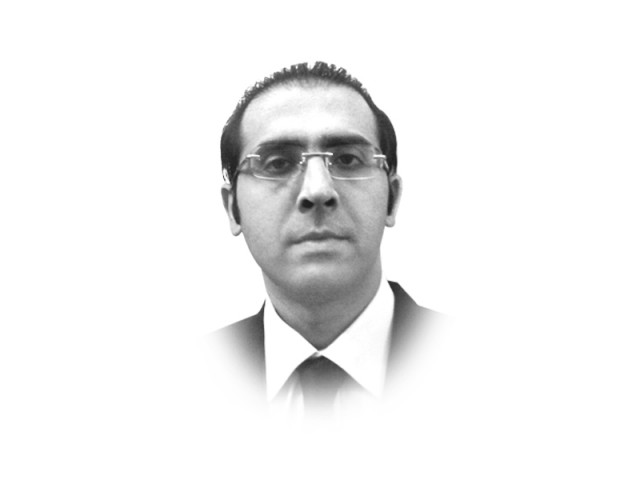Why Ziaul Haq should not be forgotten
Ziaul Haq reminds us of the evil, mediocre and I stake everything and say; common men are capable of.

Why Ziaul Haq should not be forgotten
I feel compelled to shed any pretense of theoretical, objective analysis and at the outset put forth my belief that Bhutto was the greatest and ablest leader that this country has witnessed. My purpose here is not to write an obituary for Zulfikar Ali Bhutto, I feel myself thoroughly ill-equipped for that task. The death anniversary of Bhutto was commemorated a few days ago, and a considerable bit has been said about his life, works and death, although not enough attention has been given to the implications of his death on the trajectory of our state. It would be an understatement and probably a misstatement to say that we have not quite recovered from Bhutto’s murder, since ‘recovery’ would imply that the infliction of damage has ceased.
There is a lot of easy, room-temperature analysis at offer these days about the decline of our state. An example of juvenile analysis is that why do people keep on electing the same corrupt politicians over and over and, perhaps, we deserve these leaders etc., and this is laced with reminiscence of the better times gone by. This often pretends as if it was some process of natural erosion or atrophy which has gradually led us to this point. Pakistani society and politics did not fade away or go giggling into the sea. They were destroyed very deliberately by the use of repression by the theocratic, tyrannical and maniacal dictatorship of Ziaul Haq. One need not be an admirer of Bhutto to see how the ghastly murder of Bhutto destroyed our moral fabric and integrity.
Coming back to the class treason bit, the 1970 election allowed the highest number of common people to be elected to the assemblies, with more feudal lords and industrial barons swept aside, than in any other election in our history. Bhutto did lose the plot slightly in 1977. However, compare this with the shamefully poorly-conducted farce of the non-party election in 1985, which returned to the assemblies the worst bit of our politics and more. Student politics was destroyed, it became a sin to be woman and the list goes on. Ziaul Haq was indeed pathological with visions about him guiding him, it was a shame that medical research could not benefit from him. Yet he did not and could not have done it alone. While Bhutto was being killed and people publicly flogged and executed, there was no meaningful opposition from the common man and that was the real damage. Weakness of this sort is regressive, as we have seen many times after that.
Due emphasis is being placed on the corruption of our leaders these days. Amongst other politicians, the Zia era produced some very brilliant army children, including his sons, who were to become very wealthy in a matter of few years. It is a shame that Pakistan has not benefitted more from the business acumen of Ijazul Haq and Humayun Akhtar Khan etc. It is indeed surprising that nobody has asked them to render accounts of how they moved from army salary allowances to the tycoons that they are today.
I could go on about Ziaul Haq, but it would be unnecessary. His political progeny have disowned him; association with Zia is now a stigma. His death anniversary passes almost unnoticed every year. Even his son does not seem entirely keen or comfortable relying on the works and wisdom of his father. The opening batsmen of his team would not like to be caught praying at his tomb. Yet, it is very important that we never forget Ziaul Haq and what he did and stood for. Actually, merely opposing what he represented is a fairly decent model of good political conscience and responsibility. The reluctance to bring up Zia cannot be solely attributed to the tedium of recollection of pain inflicted on the Pakistani people in general but also because Zia remains the most horrifying and shameful skeleton in many important closets. To use a term, unironically, a thorough post-mortem of Ziaul Haq and his legacy is essential, if for nothing else, then for closure. It is also necessary, perhaps, because we are still not completely immune to the lure of that demagoguery.
Ziaul Haq should remind us of the evil, mediocre and I stake everything and say; common men are capable of. In the comparison between Bhutto and Zia to mention the verdicts of history etc., will be a cliché. Admittedly, some Bhutto supporters go a tad too far in their devotion, yet he certainly was a man worth admiring. Even his political opponents feel compelled to praise him before attacking other members of his party; I suspect this is not merely genteel courtesy dictating that one not speak ill of the dead, but the feeling of guilt, of blood on their hands and their complicity in his murder.
Published in The Express Tribune, April 8th, 2012.















COMMENTS
Comments are moderated and generally will be posted if they are on-topic and not abusive.
For more information, please see our Comments FAQ